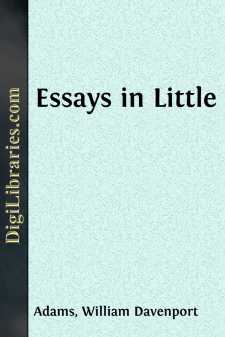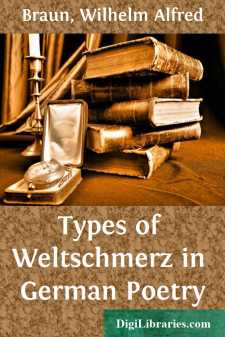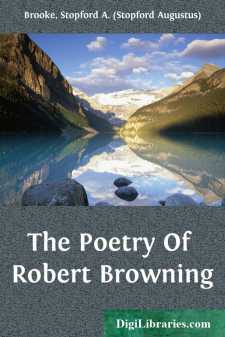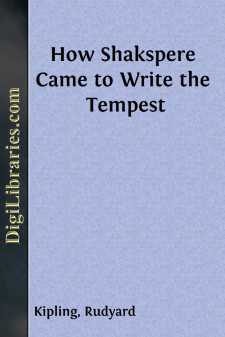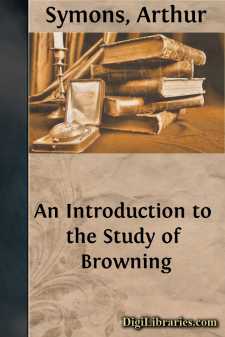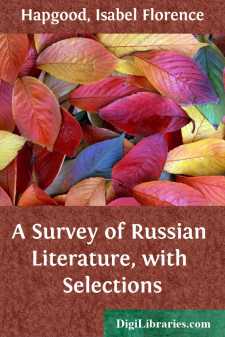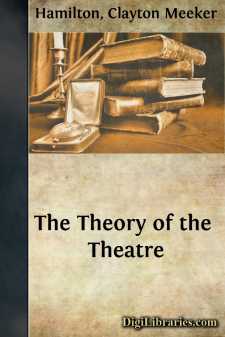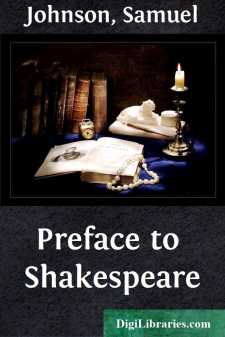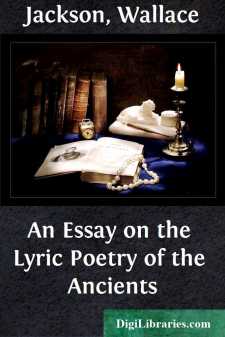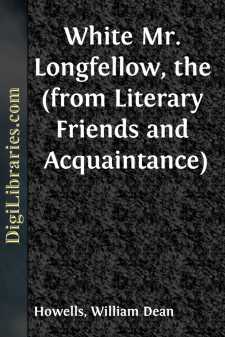Literary Criticism
- American 18
- Ancient and Classical 3
- Asian 1
- Australian & Oceanian 1
- Books & Reading 8
- Caribbean & Latin American 2
- Drama 2
- English, Irish, Scottish, Welsh 49
- European 7
- General 37
- Horror 1
- Humor 2
- Jewish 2
- Medieval 2
- Middle Eastern 3
- Poetry 7
- Renaissance 6
- Russian & Former Soviet Union 1
- Shakespeare 27
Literary Criticism Books
Sort by:
ALEXANDRE DUMAS Alexandre Dumas is a writer, and his life is a topic, of which his devotees never weary. Indeed, one lifetime is not long enough wherein to tire of them. The long days and years of Hilpa and Shalum, in Addison—the antediluvian age, when a picnic lasted for half a century and a courtship for two hundred years, might have sufficed for an exhaustive study of Dumas. No such study...
more...
CHAPTER I Introduction The purpose of the following study is to examine closely certain German authors of modern times, whose lives and writings exemplify in an unusually striking degree that peculiar phase of lyric feeling which has characterized German literature, often in a more or less epidemic form, since the days of "Werther," and to which, at an early period in the nineteenth century,...
more...
CHAPTER I BROWNING AND TENNYSON Parnassus, Apollo's mount, has two peaks, and on these, for sixty years, from 1830 to 1890, two poets sat, till their right to these lofty peaks became unchallenged. Beneath them, during these years, on the lower knolls of the mount of song, many new poets sang; with diverse instruments, on various subjects, and in manifold ways. They had their listeners; the Muses...
more...
by:
Rudyard Kipling
INTRODUCTION Mr. Kipling’s brilliant reconstruction of the genesis of the ‘Tempest’ may remind us how often that play has excited the creative fancy of its readers. It has given rise to many imitations, adaptations, and sequels. Fletcher copied its storm, its desert island, and its woman who had never seen a man. Suckling borrowed its spirits. Davenant and Dryden added a man who had never seen a...
more...
by:
Arthur Symons
A BIBLIOGRAPHY OF ROBERT BROWNING The following list of the published writings of Robert Browning, in the order of their publication, has been compiled mainly from Dr. Furnivall's very complete and serviceable Browning Bibliography, contained in the first part of the Browning Society's Papers (pp. 21-71). Volumes of "Selections" are not noticed in this list: there have been many in...
more...
THE ANCIENT PERIOD, FROM THE EARLIEST TIMES TO THE INTRODUCTION OF CHRISTIANITY IN 988. Whether Russia had any literature, or even a distinctive alphabet, previous to the end of the tenth century, is not known. In the year 988, VladÃmir, Grand Prince of KÃeff, accepted Christianity for himself and his nation, from Byzantium, and baptized Russia wholesale. Hence his characteristic title in...
more...
I WHAT IS A PLAY? A play is a story devised to be presented by actors on a stage before an audience. This plain statement of fact affords an exceedingly simple definition of the drama,—a definition so simple indeed as to seem at the first glance easily obvious and therefore scarcely worthy of expression. But if we examine the statement thoroughly, phrase by phrase, we shall see that it sums up...
more...
by:
Samuel Johnson
PREFACE TO SHAKESPEARE That praises are without reason lavished on the dead, and that the honours due only to excellence are paid to antiquity, is a complaint likely to be always continued by those, who, being able to add nothing to truth, hope for eminence from the heresies of paradox; or those, who, being forced by disappointment upon consolatory expedients, are willing to hope from posterity what...
more...
by:
Wallace Jackson
INTRODUCTION John Ogilvie (1733-1813), Presbyterian divine and author, was one of a group of Scottish literary clergy and a fellow of the Edinburgh Royal Society. Chambers and Thomson print the following generous estimation of his work:Of all his books, there is not one which, as a whole, can be expected to please the general reader. Noble sentiments, brilliant conceptions, and poetic graces, may be...
more...
We had expected to stay in Boston only until we could find a house in Old Cambridge. This was not so simple a matter as it might seem; for the ancient town had not yet quickened its scholarly pace to the modern step. Indeed, in the spring of 1866 the impulse of expansion was not yet visibly felt anywhere; the enormous material growth that followed the civil war had not yet begun. In Cambridge the...
more...


